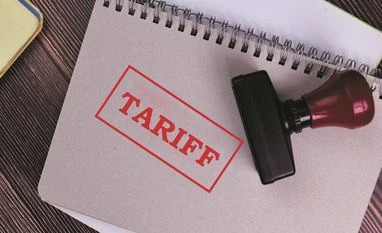The department of commerce has started intense consultations with relevant government departments and ministries to finalise products from the European Union (EU) that will attract higher import duty — as part of India’s retaliatory measures against the trade bloc’s steel tariff.
“We are in the process of finalising (the products). We are having discussions with concerned ministerial departments to select the products on which we will put in the tariffs,” a top government official told Business Standard.
Last week, India informed the World Trade Organization (WTO) that it has decided to put in retaliatory measures against the trade bloc’s steel tariff. The tariff has been in effect since 2018 and has been extended till June 2025.
Provisional safeguard measures on imports of certain steel products were first imposed in 2018 on 26 varieties of steel.
The safeguard measures took the form of tariff rate quota (TRQ) and any steel beyond the quota was subject to 25 per cent additional tariff.
While the measure was supposed to be in place till June 2021, it was later extended till June 30, 2024. In June, the EU extended safeguard duties on steel imports till June 2026.
The larger idea was to ‘prevent economic damage’ for EU steel producers. This comes amid high global steel overcapacity and surge in exports from China via Asian nations to the trade bloc.
“We had a lot of discussions with them (EU) that they should not put India under additional tariffs. But they insisted on continuing with the additional tariffs, which we have been discussing with them for a long time. We finally had to seriously look at imposing retaliatory tariffs,” the official cited above said.
“We will be looking at corresponding products, in which we will impose additional imports. It will be equivalent to the amount of loss that Indian businesses had to suffer,” the official added.
Over a five-year period, around $4.4 billion worth of India’s exports have been impacted and the EU has collected $1.1 billion import duty due to imposition of tariffs.
India plans to impose an equivalent amount of duty on the goods originating from the EU.
Two years ago, India had also proposed additional import duties of 15 per cent on import of 22 products, including whisky and cheese from the United Kingdom (UK). This was in retaliation to the UK's decision to impose restrictions on steel products.
According to Delhi-based think tank GTRI, India's steel industry is already struggling with cheap imports from China.
It is also facing challenges in meeting the requirements of EU's Carbon Border Adjustment Mechanism (CBAM) that is set to take effect from January 2026.
“The EU’s safeguard measures, which have been in place since 2018 have drastically reduced India’s export volumes to the EU, causing significant financial losses,” GTRI said in a report.
It added that the measures have reduced India’s competitiveness in the EU market, leading to a significant decline in export volumes.
Unlock 30+ premium stories daily hand-picked by our editors, across devices on browser and app.
Pick your 5 favourite companies, get a daily email with all news updates on them.
Full access to our intuitive epaper - clip, save, share articles from any device; newspaper archives from 2006.
Preferential invites to Business Standard events.
Curated newsletters on markets, personal finance, policy & politics, start-ups, technology, and more.
)